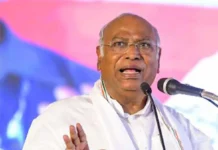MUMBAI: Mahatma Gandhi’s profound impact on the Indian psyche may not show on the surface but reflects somewhere in society’s “idea of compassion”, says filmmaker Shyam Benegal, who often turns to Indian history to connect the past to the present. Benegal studied the legend that is Gandhi for at least four projects – “The Making of the Mahatma”, “Bharat Ek Khoj”, “Samvidhaan” and “Netaji Subhas Chandra Bose”.
In the “The Making of the Mahatma”, Benegal explored Gandhi’s early years in South Africa with theatre actor Rajit Kapoor playing the central role. Gandhi also crops up in two episodes of “Bharat Ek Khoj”, the filmmaker’s epic TV adaptation of Jawaharlal Nehru’s “Discovery of India”. In his 10-part series on the Indian Constitution, also for TV, Neeraj Kabi played Gandhi. And in the biopic of Netaji, Benegal got theatre actor Surendra Rajan to enact the role of Gandhi.
According to Benegal, 84, one of Indian cinema’s most critically acclaimed filmmakers, Gandhi’s views and his thinking have “unquestionably permeated” the Indian psyche. “It is very difficult to judge or ascertain this but I do believe Gandhi’s influence has been very profound on Indians. It may not necessarily show on the surface but somewhere it has to do with the idea of compassion and a sense of humanity.
“These are the feelings that have permeated into the Indian character and are ultimately a part of Indian thinking,” Benegal told PTI. Gandhi’s ideas were drawn from Indian philosophy and ethos. He brought these ideas back on the surface, which was important, he said.
Asked if Gandhi is losing relevance in modern India and his ideas being trampled upon, Benegal said Gandhi always faced resistance for his philosophy. “There was never a time when they (his ideas) were not being trampled upon, even in his own time.
“Because he brought out what was a part of our philosophy, he focused on ideas that were already there. He highlighted those aspects that were not being followed and those that had crept into views and attitudes, for instance, evils of caste system. According to Benegal, the best tribute to the man 150 years after his birth would be to have compassion for fellow human beings.
The best way to remember Gandhi, who led a non-violent freedom struggle against the world’s mightiest colonisers, is to have “non-violence in all our dealings”, he said. Benegal said his 1996 film “The Making of the Mahatma” was an attempt to understand Gandhi’s evolution, both personally and as a world leader.
“The film was about his process of understanding things, his learning. It is a story of his evolution, his own attempt not only to understand the world around him but also his relationships with other people and how people should treat each other within communities. Because he was in South Africa and faced racism, he learnt all this,” he added. PTI







